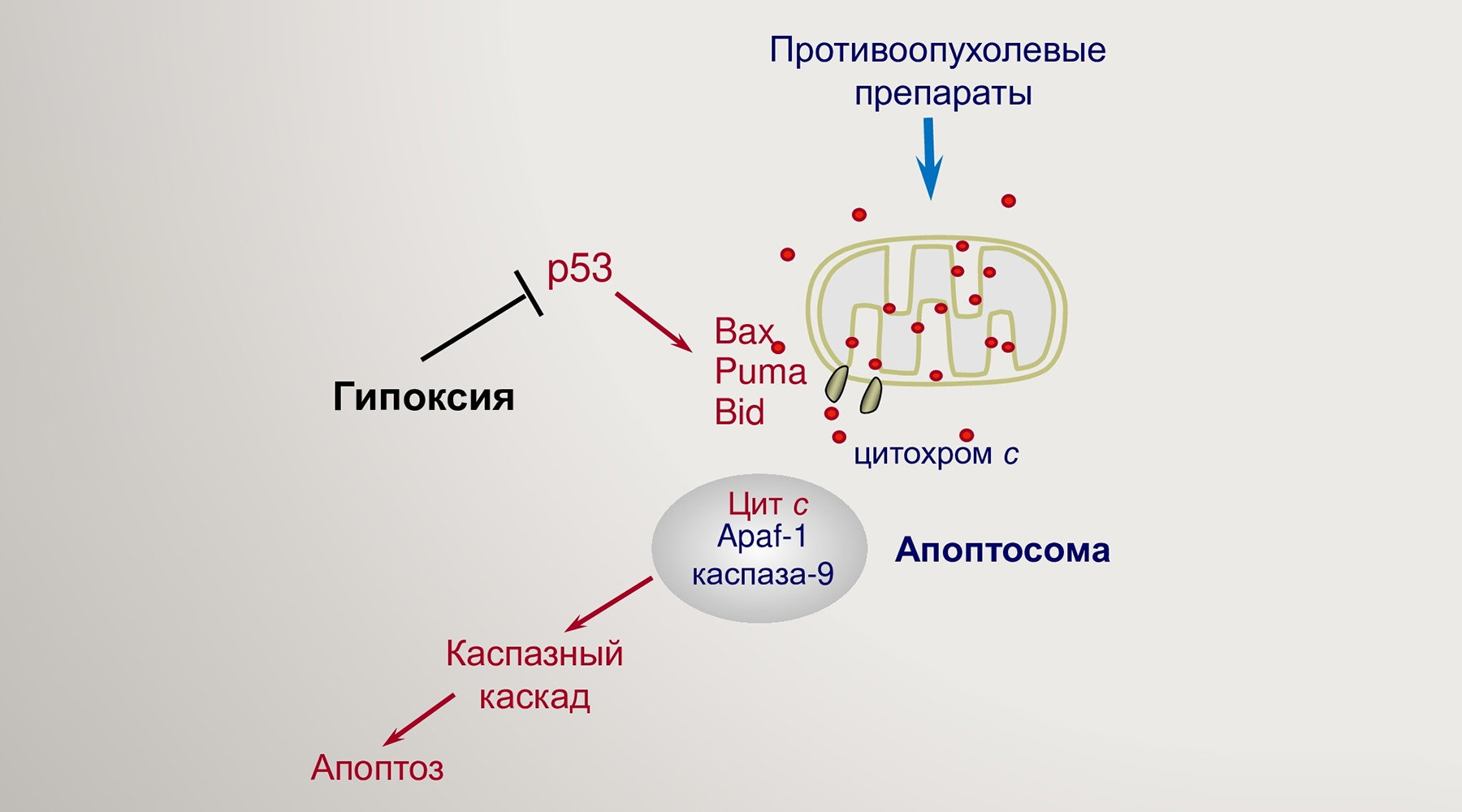Biologists of the Moscow State University named after M.V. Lomonosov and Karolinska University (Sweden) described the mechanism by which cancer cells avoid death. The discovery can be used in the development of anticancer drugs, scientists say. This was reported to RT by the press service of the Russian Science Foundation, which supported this work. The research results are published in the journal Chemico-Biological Interactions.
The mechanism described by scientists is based on apoptosis, that is, the process of programmed cell death.
As a result of apoptosis, the cell quickly disintegrates into fragments that are absorbed by other cells, and no inflammatory reaction occurs.
This is how the human body gets rid of cells in whose DNA too many random mutations have accumulated.
By artificially inducing apoptosis in malignant tumors, cells can be made to kill themselves, experts say.
Back in 2002, Oxford scientists established that most tumors develop during hypoxia, that is, in conditions of insufficient blood supply and oxygen supply to cells.
However, until now it was not clear what exactly mechanism helps cancer cells to avoid self-destruction in these conditions, which are unfavorable for healthy cells.
Mechanism by which cancer cells avoid death when oxygen is deprived
© Vladimir Gogvadze / Moscow State University
In a new study, Russian and Swedish biologists have modeled hypoxic conditions for intestinal and lung tumor cells.
The results of the experiment showed that the lack of oxygen in the cells caused a decrease in the amount of certain proteins, namely, members of the Bcl-2 family.
They create pores in the walls of mitochondria (energy stations of the cell), through which a kind of "poisons" enter the cytoplasm, triggering processes that are fatal for the affected cell.
As it turned out, in order to return tumor cells to the path of programmed death, it is necessary to artificially activate the work of the regulator protein p53, which controls the production of proteins of the Bcl-2 family.
As the author of the work, Doctor of Biological Sciences, Leading Researcher at the Laboratory for Research of the Mechanisms of Apoptosis at the Faculty of Fundamental Medicine, Moscow State University, Vladimir Gogvadze, explained to RT, in order to develop an effective treatment for malignant neoplasms, it is necessary first of all to study how the resistance of cancer cells to death can be overcome.
“For this, in further studies, we plan to test how substances that activate the p53 protein or stimulate the work of mitochondria in the absence of oxygen act on tumors.
Perhaps this will become the basis for the development of new drugs against cancer, ”summed up Gogvadze.

